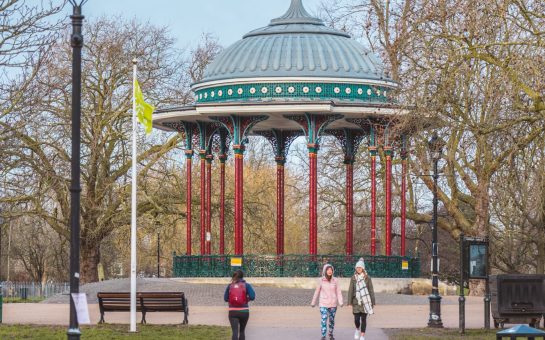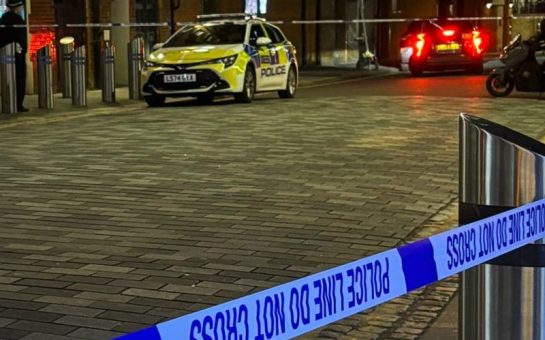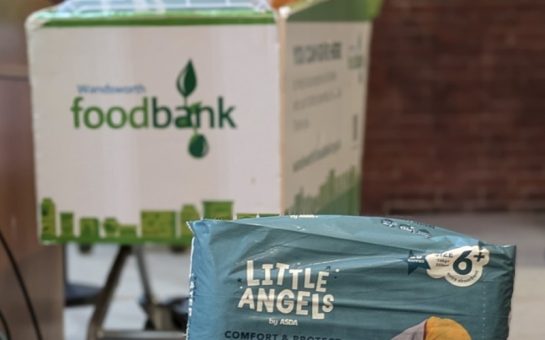Women feel far less safe walking alone at night, going on first dates, and travelling on public transport alone than they did three years ago.
Data by YouGov, commissioned by The Independent, asked women and men a series of questions regarding how safe they felt in various situations in 2018 and repeated this poll in 2021.
This data unsurprisingly follows an increase in media attention this year of instances of violence against women, including the horrific murders of Sarah Everard and Sabina Nessa.
Within three years, the data showed an increase in 13% of women who always or often feel unsafe walking alone at night, rising from 38% in 2018 to 51% in 2021.
In comparison, in 2021 only 15% of men asked reported always or often feeling unsafe in the same situation.
In all responses, ranging from feeling unsafe when waiting at a pub alone to being alone with a tradesperson in their home, more women reported feeling always or often unsafe.
This was also the case with everyday situations like exercising at the gym, suggesting the extent to which women’s day-to-day lives are being hindered by risks to their safety.
A particularly interesting increase in always or often feeling unsafe, is when women go on a first date.
As the era of online dating has continued after a pandemic pause, many women are facing greater anxiety when going on first dates with strangers, or people they have met online.
Part of these fears may have stemmed from post-lockdown-anxieties of having restricted social lives over the last year and fewer people on the streets.
In particular, women who live close to the site of Sarah Everard’s abduction share the anxieties at a higher level.
Katherine Procter, 21, walks through Clapham Common as part of her regular commute.
She told SWL: “I don’t feel safe, especially now in winter as it’s already very dark when I’m walking home.
“I worry about wearing earphones and that I won’t be aware of people around me, or if someone approaches me from behind and I don’t hear footsteps.
“Sarah Everard was abducted quite close to my home so there’s a constant reminder of the worst that can happen.”
Speaking of protective measures Katherine now feels as if she has to take, being more aware of the dangers she could be facing, she said: “I always call my parents to let them know my location for their, and my own peace of mind.
“I always have my keys in hand in my pocket if I need, and try not to draw attention to myself or make contact with anyone as I walk.
“At night I almost always take Ubers, and several times I’ve called my dad to make sure the driver overhears that a man is waiting for me when I reach home.”
Sasha Nugara, 21, recalled a specific recent incident that highlighted her lack of safety as a woman at night in South London.
She told SWL: “I definitely do feel more scared going out now than I did three years ago, especially living in South West London.
“Last week, my housemate and I were followed coming home from a bar at 9.30pm, when there were still so many people around.
“You would think at that time we would be completely safe, we weren’t drunk, but we got targeted, followed home.
“We had to duck into a shop and get a man who worked there to scare him away before we could walk home.
“It’s not great at the moment.
“I definitely think I am more scared after all of the media attention coverage following Sarah Everard’s case.
“I live in Clapham, and she was targeted in Clapham Common, so the idea has really scared me and affected how I act now, especially when I’m walking around Clapham.
“It’s made me more aware of who’s about and who’s watching me, and I would never walk home on my own.
“If I was on a first date with someone who I met online, and I was taking an Uber home I would never let them see my address or anything like that.
“I have given my housemate my location constantly through our phones and I always tell her where I’m going and show her a photo of the guy, so she knows where I am and who he is at all times, just in case anything ever happens to me.”
While the media has drawn greater attention to issues regarding women’s safety in the last year, and perhaps an increase in feeling unsafe and fearing threats in public spaces is unsurprising, some of the data showing disparities between men and women is more surprising, as such a small proportion of men responded with always or often feeling unsafe in the situations involved.
Not only this, but there were few differences between men’s responses in 2018 and 2021.
In 2021, more than double the number of women reported always or often feeling unsafe when walking down an alley alone than men, with 50% of women and 17% of men.
Similarly, only 4% of men reported feeling always or often unsafe when riding a taxi alone, compared to 1 in 5 women.
Even in situations where women are regarded to be in ‘safer spaces’ such as walking alone during the day or walking with a friend or partner at night, fewer men reported always or often feeling unsafe compared to women.#
Meanwhile, even greater disparities were shown when respondents answered that they would never be in the situation.
For example, returning to the situation of walking down an alley alone, 20% of women responded that they would never do this, while only 8% of men did.
When travelling alone, the trend continued. 30% of women would never ride a train alone, 28% would never ride the bus alone, and 29% would never ride a taxi alone. Yet, the answers for men were only 24%, 22%, and 23% respectively.
As media attention surrounding women’s safety has increased, the government and police have come under fire for not offering real solutions to protecting women, such as the ‘888’ service proposed by home secretary Priti Patel which was criticized heavily by campaigners and activists for putting women’s privacy at risk, or the proposal to increase the number of undercover police officers working in clubs and bars.
Instead, many women have taken it upon themselves to protect themselves, carrying rape alarms, pepper spray, staying on the phone when walking alone, or only walking in busy, well-lit places at night.
Some have even begun taking self-defence lessons as a way of being able to protect themselves in these situations if needed, after a reduction in their trust in police forces.
Speaking to SWL, Katherine added: “After recommendations from some friends, I decided to buy a rape alarm to have in my pocket when I’m walking around at night.
“Just having it nearby makes me feel that much safer, knowing it’ll call out for help if I need.
“At the same time, it’s upsetting that I’ve had to buy one, just for some peace of mind, even though I know that it may not actually work as a defense mechanism.”
In 2018, nearly a third of women, at 32%, admitted taking steps on a regular basis to protect themselves from being sexually assaulted, which increased to 41% in 2021.
One reason women are taking protective measures is due to the victim-blaming narrative that has become prevalent in society.
Meanwhile, the data barely changed for men. In fact, the percentage of men who did take protective measures decreased by 1% in the three years.
As violence against women across the streets of the nation continues to draw media attention, perhaps life for women has not become more dangerous forcing them to take safer measures, but rather, their perceptions on how safe they really are have changed.




